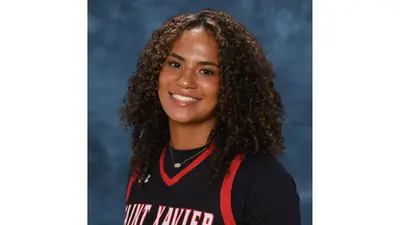DeKalb County Law & Justice Committee met Aug. 22.
Here are the minutes provided by the committee:
The Law and Justice Committee of the DeKalb County Board met in the Legislative Center’s Gathertorium in Sycamore, Illinois. Madam Chair Dianne Leifheit called the meeting to order at 6:30 p.m. Those members present were Ms. Mary Cozad, Mrs. Karen Cribben, Mrs. Kathy Lampkins, Mr. Ellingsworth Webb, and Chair Dianne Leifheit. Mr. Larry West and Ms. Suzanne Willis were absent. A quorum was established with five Members present and two absent.
Others present included Sheriff Sullivan, Jill Olson, Michael Venditti, Steve Sells, Peggy Carey, and Camden Lazenby.
APPROVAL OF THE AGENDA
It was moved by Mr. Webb, seconded by Mrs. Lampkins and it was carried unanimously by voice vote to approve the agenda as presented.
APPROVAL OF MINUTES
Mrs. Lampkins moved to approve the minutes of the July 25, 2022 Committee Meeting. Ms. Cozad seconded the motion and it was carried unanimously.
PUBLIC COMMENTS
There were no public comments.
COURT APPOINTED SPECIAL ADVOCATES (CASA) UPDATE
CASA DeKalb County Executive Director Jill Olson joined the Law & Justice Committee to provide an update on the program.
Ms. Olson explained that the mission of CASA is, “To advocate for and serve as the voice for abused and neglected children in DeKalb County.” CASA (Court Appointed Special Advocates) is the designated Guardian ad litem (GAL) appointed to abused and neglected children in DeKalb County (DeKalb County is one of eleven GALs in Illinois). These children are in the court system through no fault of their own. CASA advocates interview the child and all relevant parties in his or her life and share this information with the judge so the judge can make decisions that enhance the child’s well-being. CASA’s vision is a community where every child is given the opportunity to thrive in a safe and loving home.
CASA DeKalb County Inc. was founded in 1993. They have over 60 DeKalb County residents as volunteer advocates. Annually, CASA serves over 200 abused and neglected children in DeKalb County. The advocates provide over 9,500 hours of volunteer service each year. Ms. Olson also reported that last year (12/31/2021) they represented 231 children. This year (as of 8/22/2022) they have already represented 201 children.
This year CASA has taken in 36 new cases. The court has closed 41 cases where 15% ended in adoption, 63% went back home (which is the goal), and 20% have either aged out (21+ years old) or resulted in other outcomes, such as transfers out of the County.
CASA trains community members as volunteer advocates for abused and neglected children in DeKalb County. A CASA volunteer stays with each child until the child’s court case is completed by having the child placed into a safe, permanent and nurturing home.
Unfortunately, with the large increase of cases and the lack of volunteer advocates post pandemic, CASA staff have been handling cases in addition to maintaining their active advocates. Ms. Olson thanked the County for their annual $40,000 contribution. That funding represents 20% of their budget, although costs continue to increase. Federal and State grants represent 9% of their budget and the large majority of made up from fundraising efforts and private donors.
The Committee thanked Ms. Olson for her update and all the work that CASA does for the children of the community.
COURT SERVICES
Monthly Reports
Court Services Director Michael Venditti placed his Adult, Juvenile, and Pretrial Monthly Reports on file. He reviewed that the Adult Probation numbers have plateaued and the community restitution service hours gap is slowly closing.
Mr. Venditti noted that the detention budget is over and he has been talking to Administration about that. There were a few significant crimes carried out by juveniles that resulted in extended visits to JJC. He also noted that he will be increasing his detention budget for the FY2023 Budget. Kane County has not increased their detention costs in a few years and it has been rumored that they may see a 10-25% increase by the end of this year.
The group touched on how the SAFE-T Act could potentially have an impact on next year’s budget and what they may look like for various Departments. Mr. Venditti noted that there is a stakeholder meeting tomorrow with Judicial, State’s Attorney’s Office, Court Services, Public Defender’s Office, etc. to review what may be changing come January 1, 2023.
Mr. Venditti also clarified that legislative changes did not occur for the proposed State-wide Pretrial Program. Now on January 1, 2023, only Counties that do not have an existing Pretrial Program will be involved in the State-wide program. This means that DeKalb County will remain in control of their very successful, Nationally Accredited County Pretrial Program.
Overview of Grant Programs
Mr. Venditti introduced Mr. Steve Sells and Ms. Peggy Carey of the Court Services Department to review two of their fully grant funded programs.
Ms. Carey began by reviewing the Swift, Certain, and Fair (SCF) Probation Program. The Bureau of Justice Assistance first awarded $600,000 in 2016 and another $750,000 in 2020 to conduct this program. All Departments that were affected by the grant were invited to the table to provide multiple perspectives on what clients would benefit from this program and what type of legal responses would be appropriate. The group developed the acceptable polices and procedures along with the programs sanctioning Matrix. Mr. Carey then developed the programs court orders and client materials.
The SCF programs deliver a sanction immediately upon detection of a violation, which is critical in changing behavior. Responding swiftly also supports perception of the fairness of the program, reinforcing that element of SCF programs. The consistency and predictability of punishments make the consequences of bad behavior clear to the offender, reinforcing the need to make better decisions and change behavior. An essential role is played by the clearly-defined behavioral contract with the offender—a tool that has repeatedly been proven to increase perceptions about the certainty of punishment. The clear demarcation of the offenders’ new supervision conditions and the opportunity for a fresh start allow the offender to regain their sense of self-control. The contract enhances the perceived fairness of any subsequent punishment; this perception of fairness is further supplemented by the sparing rather than harsh level of punishment upon violation, which additionally limits disruption of employment and other non-criminal routines and relationships.
Swift: SCF programs deliver a sanction immediately upon detection of a violation, which is critical in changing behavior. Responding swiftly also supports perceptions of the fairness of the program, reinforcing that element of SCF programs.
Certain: The consistency and predictability of punishments make the consequences of bad behavior clear to the offender, reinforcing the need to make better decisions and change behavior. An essential role is played by the clearly-defined behavioral contract with the offender—a tool that has repeatedly been proven to increase perceptions about the certainty of punishment.
Fair: The clear demarcation of the offenders’ new supervision conditions and the opportunity for a fresh start allow the offender to regain their sense of self-control. The contract enhances the perceived fairness of any subsequent punishment; this perception of fairness is further supplemented by the sparing rather than harsh level of punishment upon violation, which additionally limits disruption of employment and other non-criminal routines and relationships.
This program is targeted to Moderate and High-Risk Offenders. This program is also developed for individuals who have previously failed regular probations measures and new offenses where a lesser sentence is not appropriate, but jail is not mandated.
Ms. Carey reviewed what happens if a SCF client violates the terms of their probation as well as the incentives they may get if they successfully complete their various conditions.
In DeKalb County, 56 total clients have been sentenced to SCF. 16 are currently active, 20 have successfully graduated, and 20 did not complete (only 10 of those went to prison). 3,464 drug tests have been administered and 222 were positive and sanctionable (6%). 13 clients with a history of substance abuse graduated successfully with no treatment required and 16 clients received inpatient treatment and/or outpatient treatment that was paid for through the DCF or COAP grants.
Mr. Venditti introduced Mr. Sells to review the Comprehensive Opioid/Stimulant and Abuse Program. Mr. Sells shared that DeKalb County Court Services was selected to receive a federal grant from the U.S. Department of Justice – Bureau of Justice Assistance in the amount of $900,000 for the DeKalb County Opioid Dependency Diversion Program in October of 2018. Mr. Sells shared that he feels they were able to secure this grant as a result of building very effective and positive relationships with the Federal Organization. The U.S. Department of Justice – Bureau of Justice Assistance reached out to the Department letting them know that this grant was available and that they really should consider applying. Mr. Sells and Ms. Carey did a deep-dive into their numbers and worked as hard as possible within that ten-day timeframe to complete the grant application and get it turned in.
The goal of the grant is to develop a diversion program for opioid addicted individuals and get them into treatment. It was additionally structured around the ability of eliminating the barriers that they often see with these types of clients. Such as, no access to treatment, transportation barriers. The clients participating in this program would be those who have been charged with Felonies that are also addicted or know to be addicted to opioids. The ideal number of clients participating in this program was said to be about 15-20 due to the intensive monitoring that would have to occur throughout the program. Mr. Sells also noted that he hopes a program like this will help some of the individuals in the southern part of the County where they have seen a large increase in opioid-related activities and deaths as well as has no accessible treatment facilities near.
Since 2019, 66 clients have been assessed for COSAP services with 86% participating in COSAP services. Assessments and new clients were down as COVID took effect. In 2021, only 11 new assessments were referred as n example. This was not due to a lack of need; this was due to the pandemic and simply not seeing people as often.
In 2022, as the court systems reopened, Mr. Sells shared that they saw a significant increase in new COSAP clients. 18 new assessments have been conducted as of August 1, 2022. The current active caseload is at 34 (with 21 of those cases coming in since January 1, 2022). The Program Coordinator is present in court on active cases to monitor progress and update the court. The coordinator also organizes transportation for the clients to treatment, and constantly communicates with clients and treatment providers. Mr. Sells also noted that $130,000 out of the entire grant is allocated specifically to treatment.
The Committee additionally discussed the ongoing fentanyl and opioid crisis nationwide and within the County of DeKalb. Mr. Sells and Ms. Carey noted that there are many clients that are on both the SCF and COSAP Programs at the same time. They work together to do all they can to help their clients turn their lives around, if they so wish to.
The Committee thanked Mr. Venditti, Ms. Carey, and Mr. Sells for all their work and dedication securing these very large grants and putting these programs together for DeKalb County.
SHERIFF’S OFFICE
Jail Population/Overtime Reports
Sheriff Sullivan reported that the average daily population for the DeKalb County Jail in July of 2022 was 124. This is an increase from last month and an increase from year at this time when the average population was 96. As of August 1st, the Sheriff’s Correction Overtime was at 57.5% of the budgeted amount. The Sheriff noted that although this is on target, he would have like the percentage to be lower but with staff vacancies, it has been difficult to accomplish that.
Sheriff Sullivan reported that he is currently down three telecommunicators in the Communications Division, three Deputies down in Corrections, and three Patrol/Detectives down.
A Resolution Approving Sheriff’s Office Job Reclassifications
Sheriff Sullivan shared that it was his understanding that the Committee has been previously brought up on the Collective Bargaining Agreement between DeKalb County Elected Officials and AFSCME established a job audit committee to review certain job classifications.
This Committee consisted of two AFSCME representatives, the Sheriff and the County Administrator. They met and recommended re-classifications of various administrative positions within his Office. According to the Agreements, the County Board would be the Governing Body to approve these reclassifications.
The Committee noted that they had not been presented with the position reclassification details so they did not feel comfortable forwarded a Resolution to the September County Board. It was asked that if the Committee was provided with the information, would they be willing to meet prior to the September Committee of the Whole Meeting in order to get this item on the September County Board Agenda. The Committee agreed with that proposed arrangement.
PUBLIC DEFENDER’S REPORT
The July 2022 Public Defender’s Report was placed on file with the Committee. The report illustrated that there were 1,635 cases opened and 2,101 cases were closed.
ADJOURNMENT
It was moved by Mrs. Lampkins, seconded by Mr. Webb, and it was carried unanimously to adjourn the meeting at 8:07 p.m.
https://dekalbcounty.org/wp-content/uploads/2022/09/minutes-law-08222022.pdf





 Alerts Sign-up
Alerts Sign-up